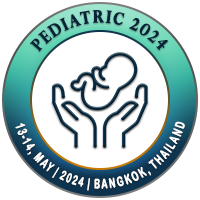
Nitu Nigam
King George's Medical University, IndiaTitle: Cytogenetics of infertility: A new frontier in reproductive medicine
Abstract
Introduction- Cytogenetics is the study of chromosomes, crucial in diagnosing and treating infertility. It helps clinicians understand underlying genetic factors contributing to infertility, enabling informed decisions about treatment options and family planning. Cytogenetic abnormalities, such as sex chromosome and autosomal abnormalities are estimated to be between 2% and 14% in infertile couples. Cytogenetic testing helps clinicians make informed choices about treatment options and family planning.
Method- The study will recruit couples seeking fertility evaluation and treatment visiting the Department of Gynaecology, KGMU, Lucknow (U.P) after obtaining informed consent. Blood samples will be collected for cytogenetic analysis. Classical karyotyping will detect chromosomal abnormalities, while Fluorescence In Situ Hybridization (FISH) and Array Comparative Genomic Hybridization (aCGH) will investigate specific chromosomal regions or gene loci associated with infertility-related genetic disorders. Reproductive outcomes will be recorded and analyzed in correlation with cytogenetic findings. Statistical methods will be employed to determine chromosomal abnormalities prevalence and their association with infertility and adverse reproductive outcomes.
Result- The primary outcome will be the prevalence of chromosomal abnormalities in the infertile couples. The secondary outcomes will include the impact of cytogenetic testing on the outcomes of ART, such as the live birth rate. When interpreting cytogenetic results in infertility research, we will consider the normal karyotype, chromosomal abnormalities, association with infertility, recurrent abnormalities, preimplantation genetic testing (PGT), parental screening, counseling and family planning, and research implications. The data will be analyzed using appropriate statistical methods. The prevalence of chromosomal abnormalities will be compared between the infertile couples and the fertile couples. The impact of cytogenetic testing on the outcomes of ART will be assessed using a logistic regression model. The results of the study should be disseminated to the scientific community and to the public to raise awareness of the importance of cytogenetics in infertility.
Conclusion- This study aims to identify chromosomal abnormalities associated with infertility and their potential impact on reproductive outcomes. The findings will shed light on the significance of cytogenetic analysis in guiding personalized infertility management strategies. Understanding the genetic basis of infertility can contribute to improved preconception counseling, early diagnosis of genetic conditions, and the development of targeted treatments for affected couples. Moreover, this research may pave the way for the incorporation of cytogenetic screening.
Biography
Will be updated soon.

